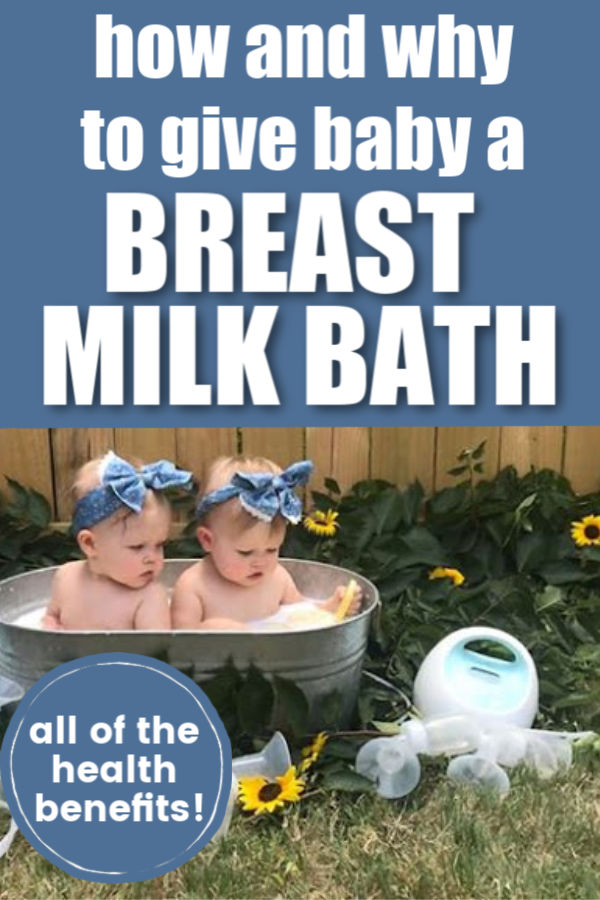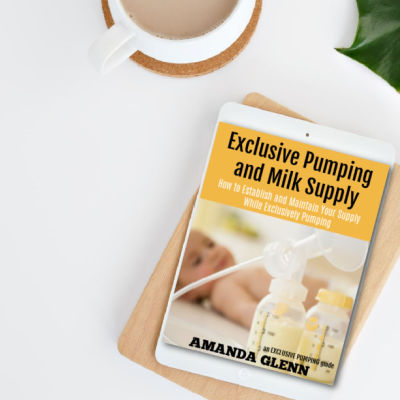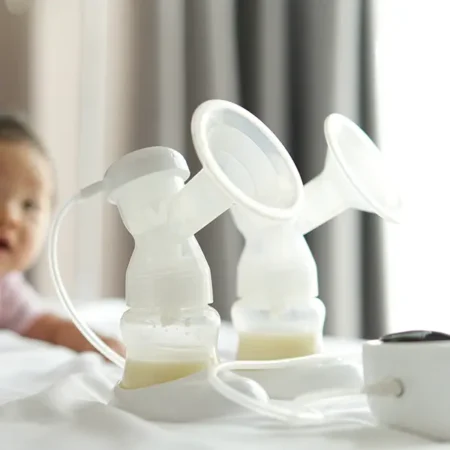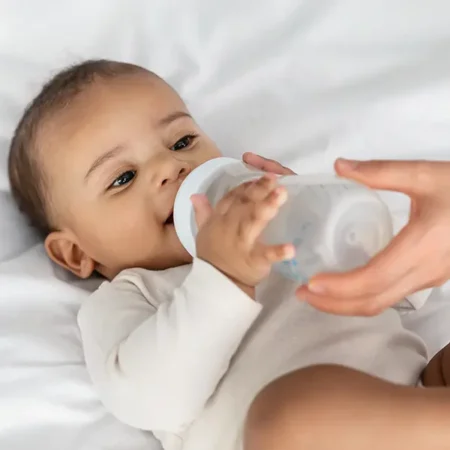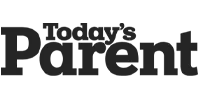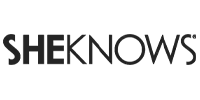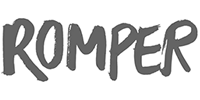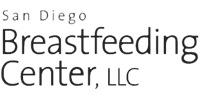Not sure what to do with milk that you can’t feed to your baby because it’s expired? Milk baths are one option to put your pumped milk to good use! Here’s everything you need to know about breast milk baths for baby.
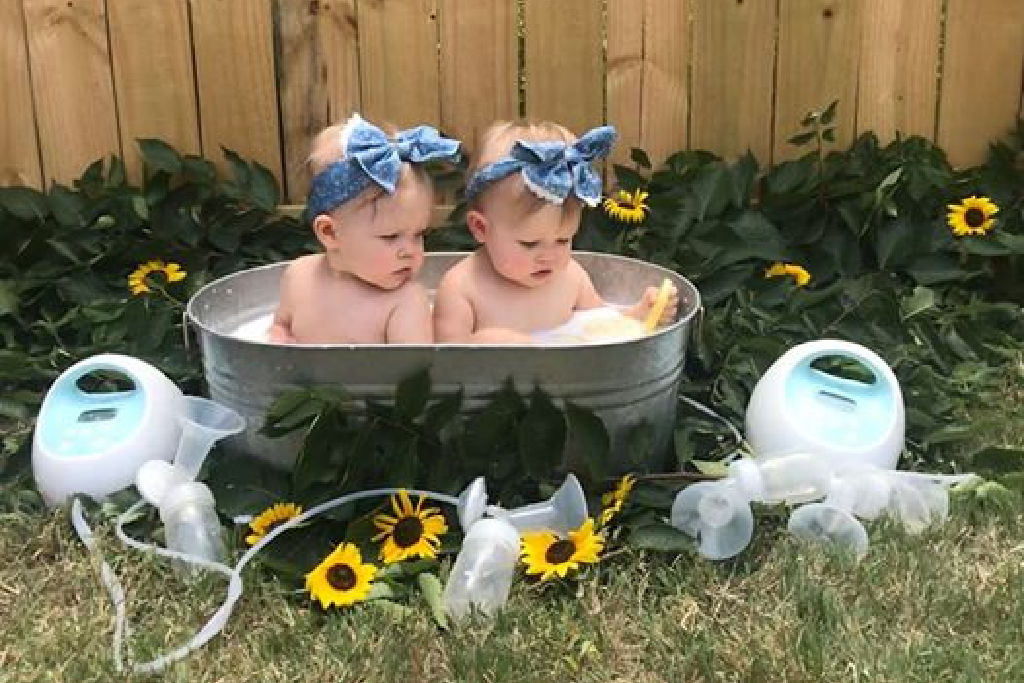
This post may contain affiliate links, which means if you click a link and purchase something, I may make a small commission at no additional cost to you. I only recommend products I love! More information here.
Why give a milk bath?
Breast milk isn’t only a wonderful food for babies, it’s great for your baby’s skin, too!
Breast milk baths are a way to use breast milk that you may not be able to safely feed to your baby. Some examples of when this might happen include:
- Your baby doesn’t finish a bottle within the appropriate window, and it needs to be discarded.
- You pump breast milk after having enough alcohol that you don’t feel comfortable feeding it to your baby (please note that pumping and dumping is often not required; you can read more on alcohol and breastfeeding here.)
- You find a 10 day old bottle of breast milk in the back of your refrigerator.
Using your milk in a bath is a great way to allow it to benefit your baby even when it can’t be fed to him or her.
What are the health benefits?

Research has demonstrated that human breast milk can be effective at treating common skin infant conditions, including diaper rash, eczema, and blocked tear ducts.
For example, one randomized controlled trial found that breast milk had the same level of effectiveness as hydrocortisone 1% ointment in treating diaper rash over a one week period.
Another study found the same was true for eczema over 21 days.
Milk baths may also help with dry skin, cradle cap, and baby acne. You can read a complete scientific review on milk therapy here.
Because human breast milk is low cost and accessible for breastfeeding moms, and because it can be used without side effects, using breast milk in baths is a good option to consider for mild skin issues (along with any other treatment your pediatrician may recommend or prescribe).
How to give your baby a milk bath
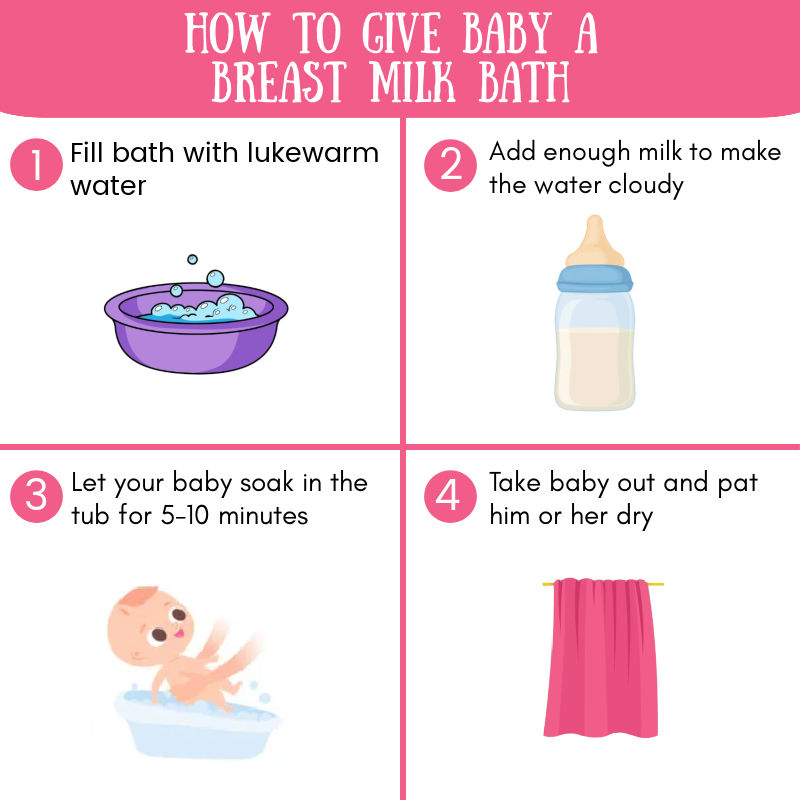
Preparing a milk bath is pretty straightforward – you just add breast milk to the bath water.
If your baby needs to be washed, do that first, then drain the tub and prepare the bath. Here are the detailed steps for giving baby a milk bath:
- Fill a tub with lukewarm water as you normally would.
- Add enough milk to make the water cloudy. The amount of milk you need will vary depending on how much water is in the bath. (You may only need a few ounces for a small baby tub; for an adult-sized bathtub, you may need 5+ oz.)
- Let your baby soak and play in the bath for 5-10 minutes.
- Take baby out and pat him or her dry.
Common questions
Below are a few common questions parents ask about giving their babies breast milk baths.
Can you use frozen or expired breast milk?
Yes, it’s perfectly fine to use thawed, previously-frozen breast milk.
Breast milk that is past the storage guidelines but isn’t spoiled and doesn’t smell “off” is generally fine. There is no research as to how long milk can be past the recommended storage time and still used for a milk bath, but in general, I would use fresh milk within a week of it expiring.
Can you use milk that your baby can’t drink because it contains an allergen?
Because babies can also have a topical reaction to an allergen, this is not recommended.
As always, talk to your pediatrician for information on what is safe for your individual baby.
How often should you give milk baths?
There is no schedule that you need to follow. Once or twice a week is great, or it’s fine to just do it occasionally whenever you have milk you won’t be able to feed.
Need help with exclusive pumping? Use EPUMP30 for 30% off
Ideas for milk bath photoshoots
A milk bath photoshoot can be a fun way to celebrate a breastfeeding journey or meeting a pumping goal!
Here are a few examples:
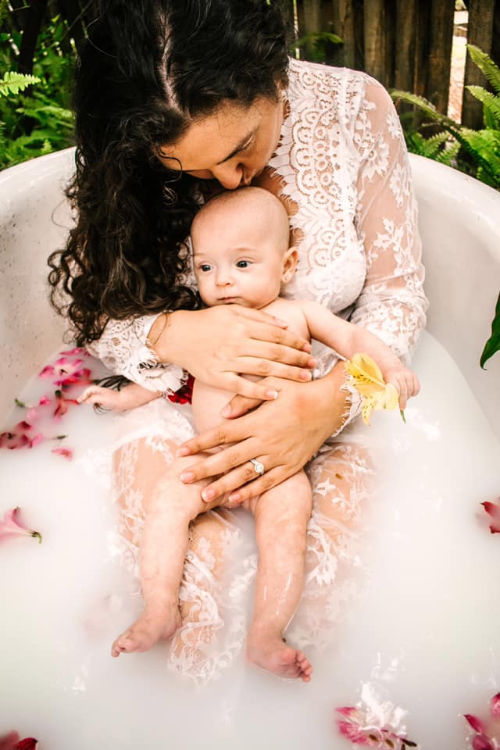

You can see more fun pumping photoshoots here.
Have you given your baby a breast milk bath? Tell us your experience in the comments!
References
- Kasrae H, Amiri Farahani L, Yousefi P. “Efficacy of topical application of human breast milk on atopic eczema healing among infants: a randomized clinical trial.” Int J Dermatol 2015;54(8):966‐971. doi:10.1111/ijd.12764 https://pubmed.ncbi.nlm.nih.gov/25640116/
- Witkowska-Zimny M, Kamińska-El-Hassan E, Wróbel E. Milk Therapy: Unexpected Uses for Human Breast Milk. Nutrients. 2019;11(5):944. Published 2019 Apr 26. doi:10.3390/nu11050944 https://www.ncbi.nlm.nih.gov/pmc/articles/PMC6567207/
